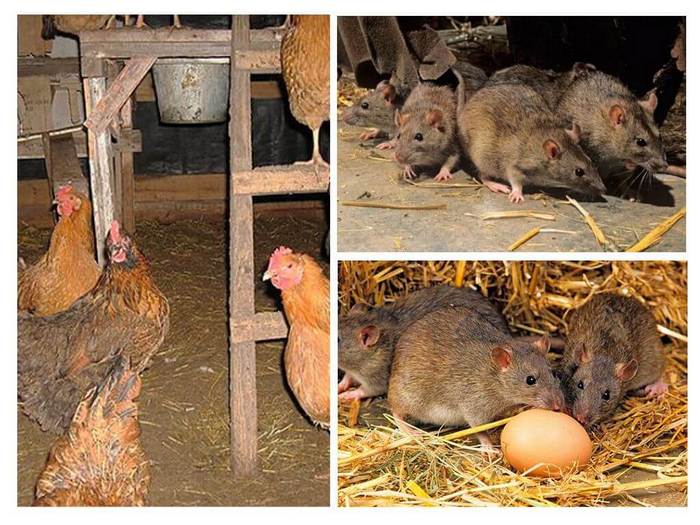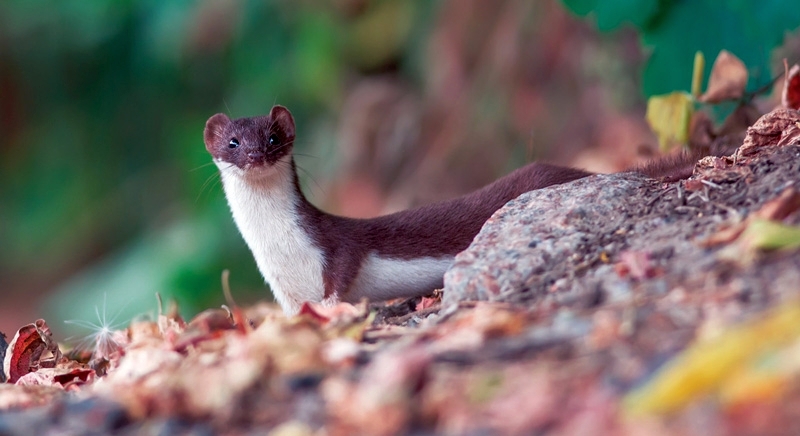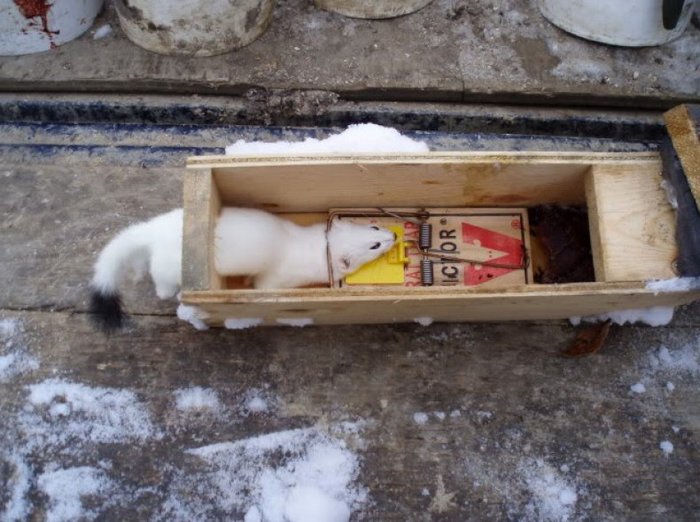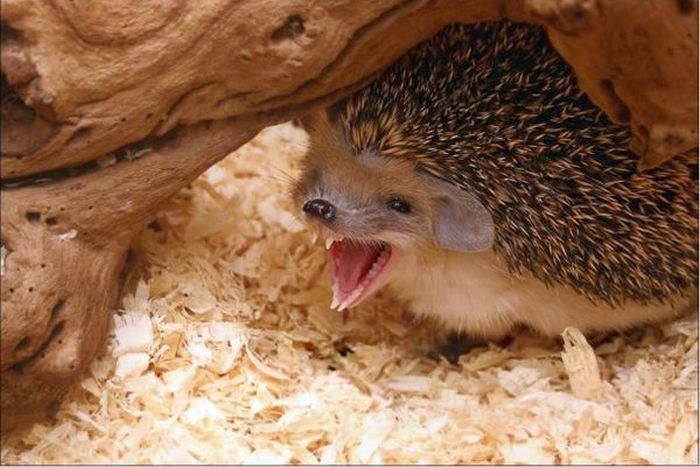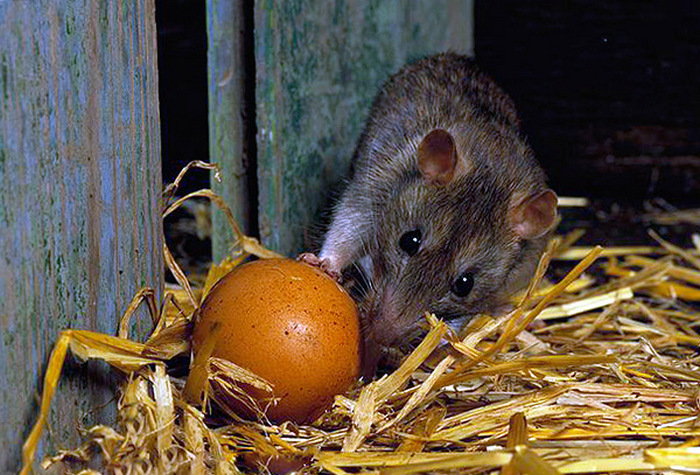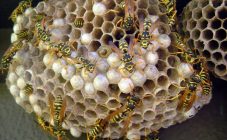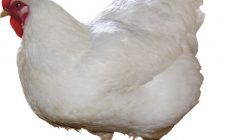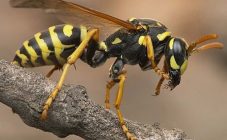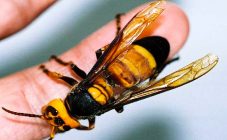Content:
Foxes, martens and rats are predatory animals that often visit farmlands. Their victims are not only chickens, but also ducks, rabbits, geese. It is worth figuring out how to protect chickens from hedgehogs, ferrets and other animals that pose a danger to birds on farms.
Who chokes chickens at night: what predators hunt birds?
Frequent guests in the chicken coop are:
- foxes,
- affection,
- ferrets.
These are cautious animals, rarely come across a person. Therefore, it is so difficult to find out who strangles the chickens at night in the chicken coop. After visiting them, they usually observe the following picture: feathers scattered over the site and the poultry house, half-eaten carcasses of chickens from which blood is drunk.
Sometimes weasels and martens are beneficial. They, like domestic cats, hunt rats and mice, which often settle in the chicken coop. Rodents steal eggs, strangle chickens and carry diseases that are dangerous for birds and humans.
Weasel and ferret signs
The ferret and weasel are dangerous animals, they kill all the living creatures in the shed by strangulation, and take only one with them. If they started to eat in the chicken coop, it means they will not leave until the food runs out. If you reintroduce a brood hen, predators will quickly deal with them, as they consider the chicken coop to be their source of food.
Signs of a predator visiting the house:
- Chickens anxiety.
- Ruffled feathers.
- Chickens are in no hurry to leave the chicken coop.
- The appearance of dead chicken carcasses with a gnawed head and sucked blood.
This behavior is typical of weasels and ferrets. To get rid of a pest, you need to catch it and destroy it. Otherwise, you can lose all chickens, and subsequently geese and rabbits.
How to protect chickens from ferret and weasel
Weasel kills chickens quietly, so it is difficult to catch it "hot". It is much easier to prevent its occurrence.
Mechanical prevention of the appearance of predators and pests can be carried out:
- Do not leave food in the trough for a long time.
- Do not store grain stocks in the chicken coop.
- Raise the nests off the ground.
- Seal gaps and holes in the walls and foundation with cement mortar.
- Dig in sheet metal or fine mesh around the chicken coop.
Farmers recommend avoiding the use of traps due to the high risk of injury in chickens. However, in cases where it is impossible to refuse this, you need to think over their location so as not to catch the hen.
Setting traps: how martens steal and kill chickens
As a rule, ferrets, weasels and martens bypass traps, so it is necessary to interest the animals. Bird feathers can be scattered in and around the trap. The predator will show curiosity and can be caught.
How to set the trap:
- It is best to use a dead animal as bait. Traps are set on the way to it.
- You cannot take the trap with your bare hands, you must use gloves.
- To rid the trap of the human odor, grease it with manure or hold it for 2-3 hours in a spruce broth.
The difficulty with this method lies in the fact that animals never walk the same route twice.It is almost impossible to predict the direction of movement, so it will be difficult to catch a weasel or marten.
Pets
Natural enemies of marten, ferret, weasel are dogs and cats. Not all, some animals do not know how to catch and are even afraid of wild animals. Therefore, it is better to have several cats and dogs.
Domestic predators will help get rid of pests, but there is always a risk that they will start to steal eggs and crush chickens. Furry predators are caught by certain breeds of dogs, but for this they need to be trained. Animals will quickly help you find out who is stealing chickens and chickens.
These breeds include:
- Dachshund.
- Jack Russell Terrier.
- Fox terrier.
- Jagdterrier.
To make wild animals afraid to approach the household block, a doghouse should be installed next to it. This will help not only scare off the predator, but also catch him if he dares to come closer.
Scarers
Ultrasonic equipment is one of the most progressive and humane ways to scare away predators and rodents. Its principle of operation is directed irritation of the sense organs of animals. This sound causes them anxiety, fear and discomfort.
Ultrasound also scares moles and mice. If chickens are kept in the same room as rabbits, it is better to refrain from using the device.
When buying an ultrasonic repeller, you need to pay attention to the range of action, it should be enough at least for the perimeter of the chicken coop. The following models are popular: Electrocat, Clean House, Grad-A and Pest Reject.
How to keep foxes from chickens in a barn
Foxes rob in all geographic regions: from steppes to tundra. They make their way into the poultry houses by digging under a fence or wall. As a rule, foxes hunt at night, but in some cases, animals can come during the day, grab stray chickens and run away.
Catching a fluffy animal using traps and traps is difficult, so it is recommended to track the animal in the evening and kill it with a gun. Valuable fur can be used for your own purposes.
If you don't want to kill a fox with your own hands, you should have dogs and let them walk around the yard at night. But make sure that they cannot get out of the gate and harm the neighboring lands.
The fox loves to panic in the chicken coop, he kills 1-2 birds, then goes into the forest. As soon as the food runs out, he will return. Foxes are very smart, they often manage to avoid traps and go unnoticed by dogs. If this predator is not eliminated in a timely manner, he will carry the chickens until the prey ends in the poultry house.
The fox has a good sense of smell, and is attracted to farm estates by such smells:
- Open manure heaps.
- The smell of fish.
- Leftover buckets.
These animals must be scared away from the yard. It's not even about the loss of chickens, they carry diseases dangerous to humans. Foxes often attack adults and children, bite them. This is often fatal.
Do hedgehogs eat chickens
Hedgehogs are not able to catch an adult chicken. Therefore, they are forced to steal eggs and chickens. Snakes do the same. If burrows of these animals are found nearby, they need to be driven away.
Rats in a chicken coop
Rats have a developed sense of smell, sharp teeth, claws and the ability to climb vertical surfaces. Their way of life within society provides for teamwork in obtaining food.
Among the reasons for the appearance of rats, breeders distinguish:
- Suitable conditions. Keeping chickens requires farmers to control the indoor temperature.The chicken coop becomes a favorite habitat for mice, especially in winter (it's warm here and there is always something to profit from).
- The presence of manholes for chickens. They allow rats and other predators to easily enter the premises.
- Food availability. In poultry houses, you can find a large amount of stocks of grain, feed and eggs.
Rats - carriers of various infections, including plague, typhus, soda, rickettsioses, rabies, leptospirosis, streptobacillosis. In addition, they are carriers of ticks, helminths and fleas.
The appearance of rodents in the hen house creates many problems:
- Rats manage to steal not only food from the feeders, but also the grain reserves in the bags.
- Destruction of most of the eggs. Rodents may not even eat them, they will simply smash them.
- The destruction of the poultry house. Rats gnaw holes and destroy wooden obstacles in their path. Over time, the building will become unusable. If you do not find in time who is carrying the chickens and chickens, you can be left without birds.
Rats can eat whole chicken only in rare cases, they are mainly engaged in looting.
How to get rid of rats in a chicken barn
The most effective and widespread means in the fight against pests are poisons and crusher traps. They allow you to quickly get rid of rodents, but these methods have disadvantages:
- Birds fall into traps. They can, of course, be freed, but the wounds will take a long time to heal.
- Chickens also eat the poisoned grain, after which they die in 100% of cases.
Therefore, it is impossible to poison rats directly in the poultry house. Even if you leave the poison out of the reach of chickens, the rats will scatter it throughout the room. The problem cannot be eliminated. For the time of getting rid of pests of chickens, it is better to move to another room.
How to keep chickens safe when using poisons
It is easy to destroy pests with poisons. However, this process is fraught with the risk of harming livestock in the area. It is worth using this method only as a last resort, if, nevertheless, it was not possible to find out who chews off the head of chickens and chickens at night.
How to understand that a chicken is poisoned:
- Convulsions.
- Refusal to eat.
- Painful appearance (ruffled feathers).
- Impaired coordination.
- Traces of blood in the droppings.
Usually a poisoned bird dies, but you can try to save it (but this is not recommended, it is better to strangle the animal and not risk it). To do this, you need to prepare a weak solution of potassium permanganate and rinse the bird's stomach by pouring liquid into the beak. You can also use activated carbon. It must be crushed into dust and mixed with water.
It is recommended to leave the poison in closed boxes, into the openings of which only a rat can penetrate. However, this method does not guarantee absolute safety. Having eaten the poison, the pest can go about his business. If death catches an animal in an open area, everyone will be in danger: cats, dogs and curious chickens. It is necessary to regularly inspect the shed for the presence of dead rats and dispose of them in a timely manner.
It is imperative to maintain order in the house. This will allow timely identification of traces of the presence of rats. Broken eggs, large amounts of chicken droppings, and dirt attract rodents.
